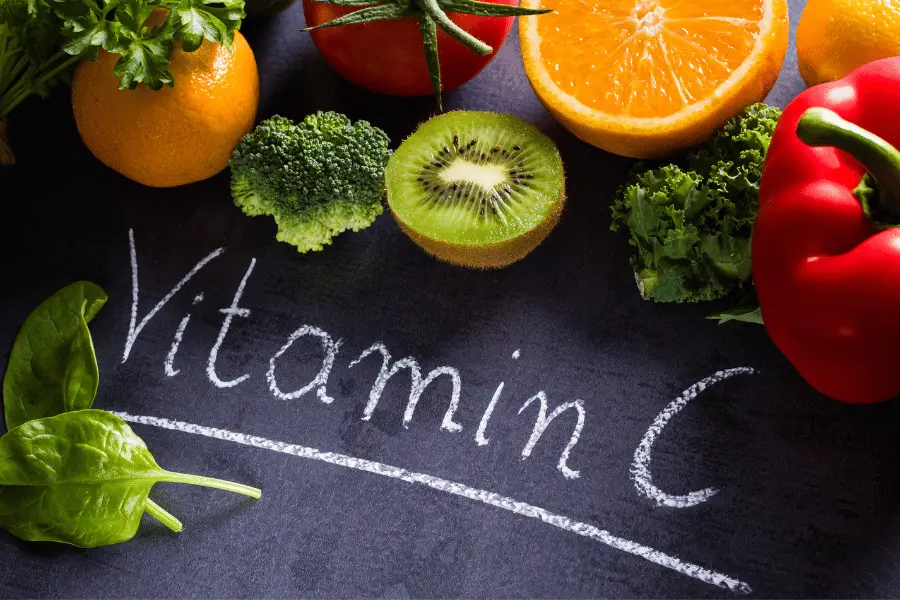Vitamin C, also known as ascorbic acid, is a crucial nutrient that plays a vital role in maintaining overall health. This water-soluble vitamin is renowned for its antioxidant properties and its contribution to various bodily functions.
Benefits of Vitamin C
Immune System Support
One of the primary benefits of vitamin C is its role in supporting the immune system. Regular intake can help the body defend itself against infections and illnesses.
Collagen Production for Skin Health
Vitamin C is essential for the synthesis of collagen, a protein that provides structure to the skin. This promotes skin health, helping to maintain its elasticity and reduce signs of aging.
Antioxidant Properties
The antioxidant properties of vitamin C combat free radicals in the body, which can contribute to chronic diseases and aging. It helps protect cells from damage and inflammation.
Daily Recommended Intake
Guidelines for vitamin C intake vary based on age, sex, and life stage. Adults generally require between 75 to 90 milligrams per day, while children have different recommended amounts. Factors like smoking and pregnancy can influence individual needs.
Natural Sources of Vitamin C
Several fruits and vegetables are rich in vitamin C:
- Citrus Fruits: Oranges, lemons, and grapefruits are classic sources.
- Berries: Strawberries, blueberries, and raspberries are not only tasty but packed with vitamin C.
- Kiwi: This small fruit is a powerhouse of vitamin C.
- Bell Peppers: Especially red bell peppers are excellent sources.
- Broccoli: A cruciferous vegetable that adds a nutritional punch.
- Spinach: A leafy green that contributes to daily vitamin C intake.
Cooking and Storage Tips
To retain the maximum amount of vitamin C in your food, opt for cooking methods like steaming or microwaving. Additionally, proper storage, such as refrigeration, can help minimize nutrient loss over time.
Vitamin C Supplements
While obtaining vitamin C from natural sources is ideal, supplements can be considered in certain situations. However, moderation is key, as excessive intake can lead to adverse effects.
Impact of Vitamin C Deficiency
A deficiency in vitamin C can lead to various health issues, including fatigue, joint and muscle aches, and impaired wound healing. Certain populations, such as smokers and individuals with limited fruit and vegetable intake, are at a higher risk.
Myths and Facts
Dispelling common myths about vitamin C is essential. For instance, while it can support the immune system, it does not necessarily prevent colds. Clarifying such misconceptions ensures accurate information.
Incorporating Vitamin C in Your Diet
From refreshing fruit salads to savory vegetable stir-fries, there are numerous ways to include vitamin C-rich foods in your diet. Snacking on berries or enjoying a citrus-infused smoothie are convenient options.
Vitamin C and Skin Health
Apart from its internal benefits, vitamin C contributes to radiant and healthy skin externally. Collagen production stimulated by vitamin C helps in reducing wrinkles and maintaining a youthful appearance.
Comparison of Fruits and Vegetables
When it comes to vitamin C content, some fruits and vegetables outshine others. Understanding these variations allows for a diverse and balanced diet.
Special Considerations
Pregnant individuals may have increased vitamin C needs, and athletes may benefit from its antioxidant properties to aid recovery. However, individual requirements vary, and consulting healthcare professionals is advised.
Potential Interactions
It’s crucial to be aware of potential interactions between vitamin C and certain medications. Seeking advice from healthcare providers ensures a well-informed approach.
Tips for Absorption Optimization
Pairing vitamin C-rich foods with those high in iron can enhance iron absorption. Additionally, enhancing bioavailability through proper food combinations is beneficial.
Conclusion
Incorporating a variety of vitamin C-rich fruits and vegetables into your daily diet is a delicious and effective way to support overall health. From bolstering the immune system to promoting vibrant skin, this essential nutrient offers a myriad of benefits. Remember, a balanced and diverse diet is key to reaping the full advantages of vitamin C.
FAQs
Q. Can I get enough vitamin C from supplements alone?
A. While supplements can help, it’s best to obtain vitamin C from a varied diet for optimal health benefits.
Q. Are there any side effects of consuming too much vitamin C?
A. Excessive vitamin C intake can lead to digestive issues. It’s advisable to stay within recommended limits.
Q. Do cooking methods affect the vitamin C content in foods?
A. Yes, some cooking methods can lead to nutrient loss. Steaming and microwaving are better choices.
Q. Can vitamin C prevent colds?
A. While it supports the immune system, vitamin C does not guarantee the prevention of colds.
Q. Is it safe to take vitamin C supplements during pregnancy?
A. Pregnant individuals should consult their healthcare providers for personalized advice.


